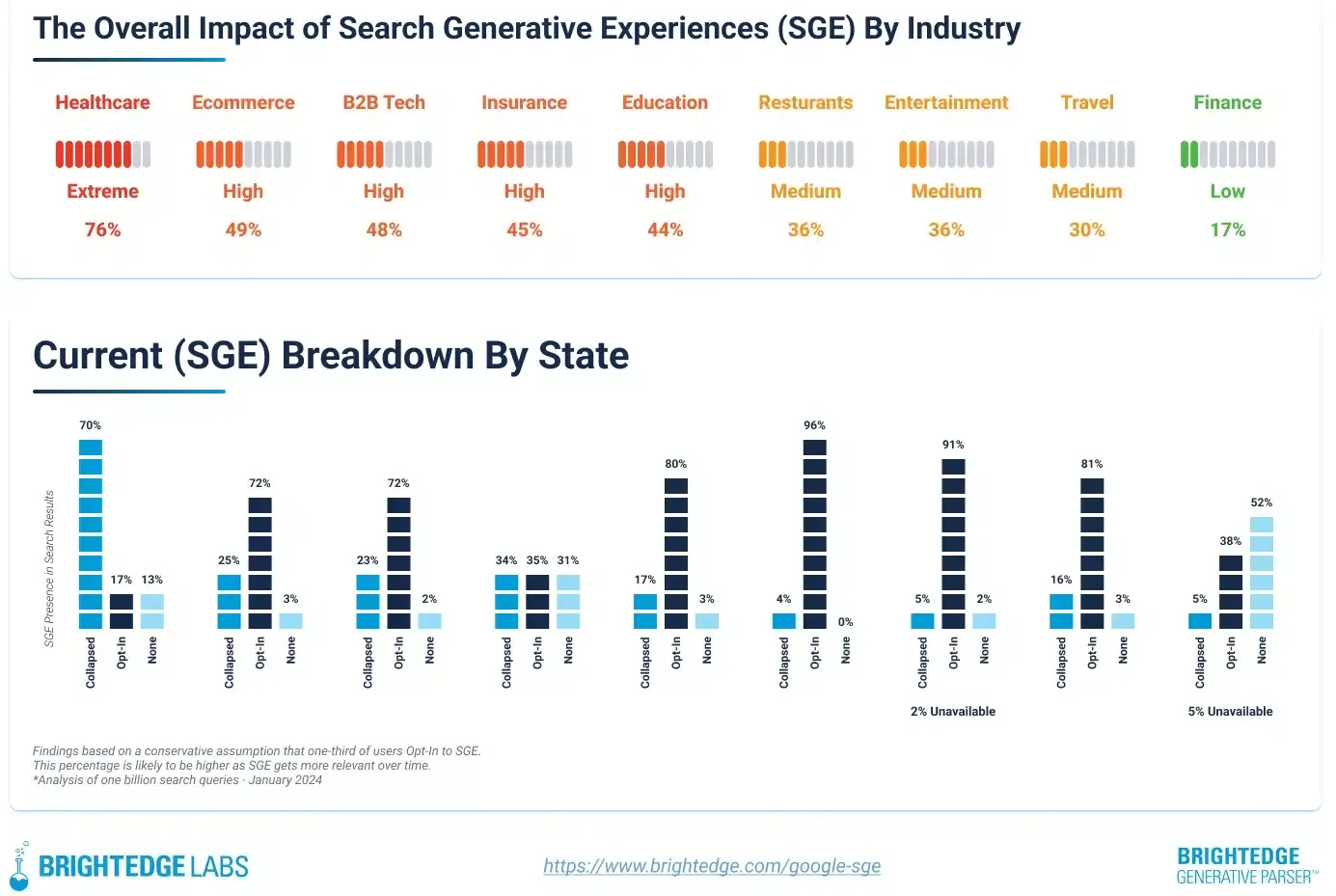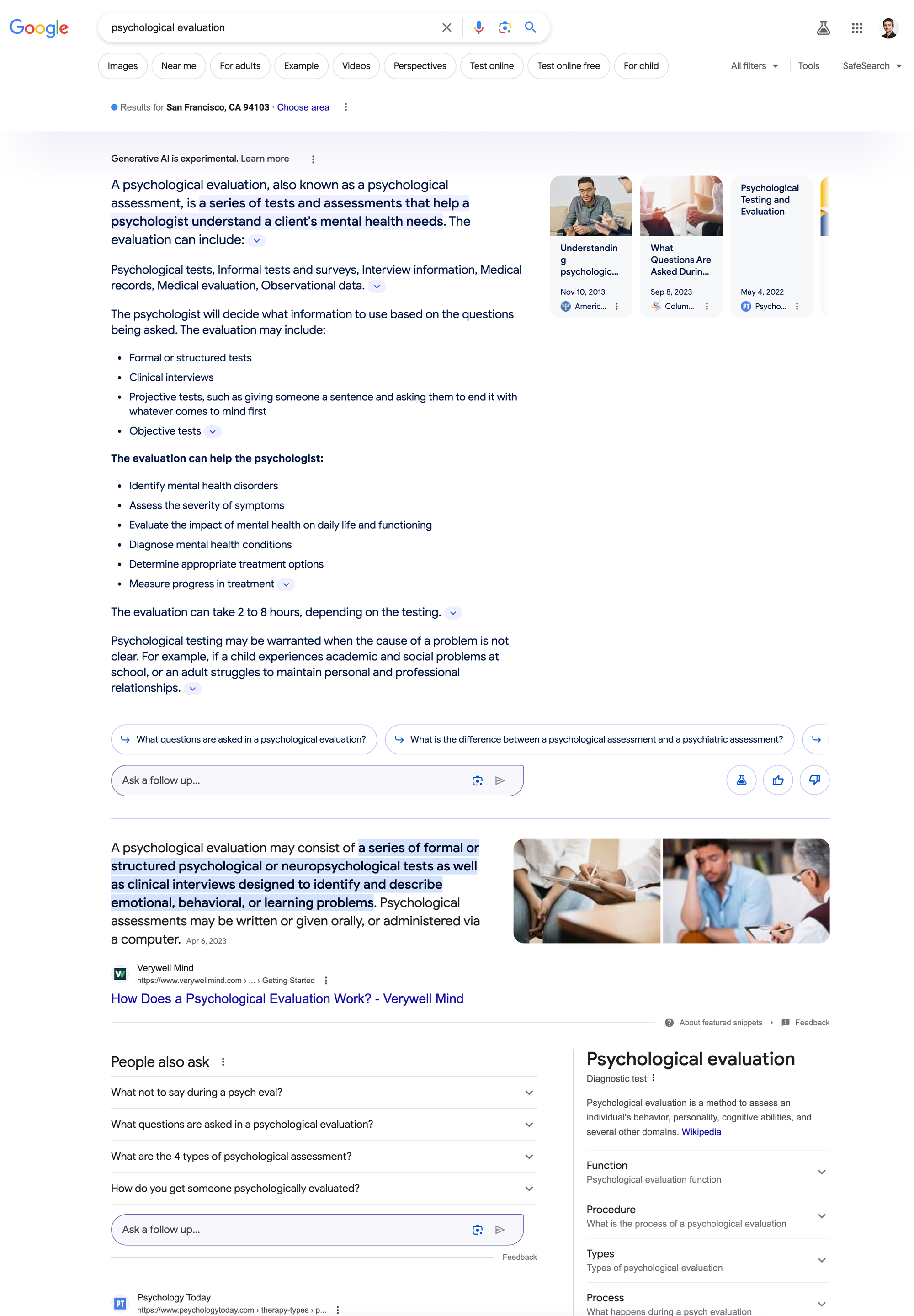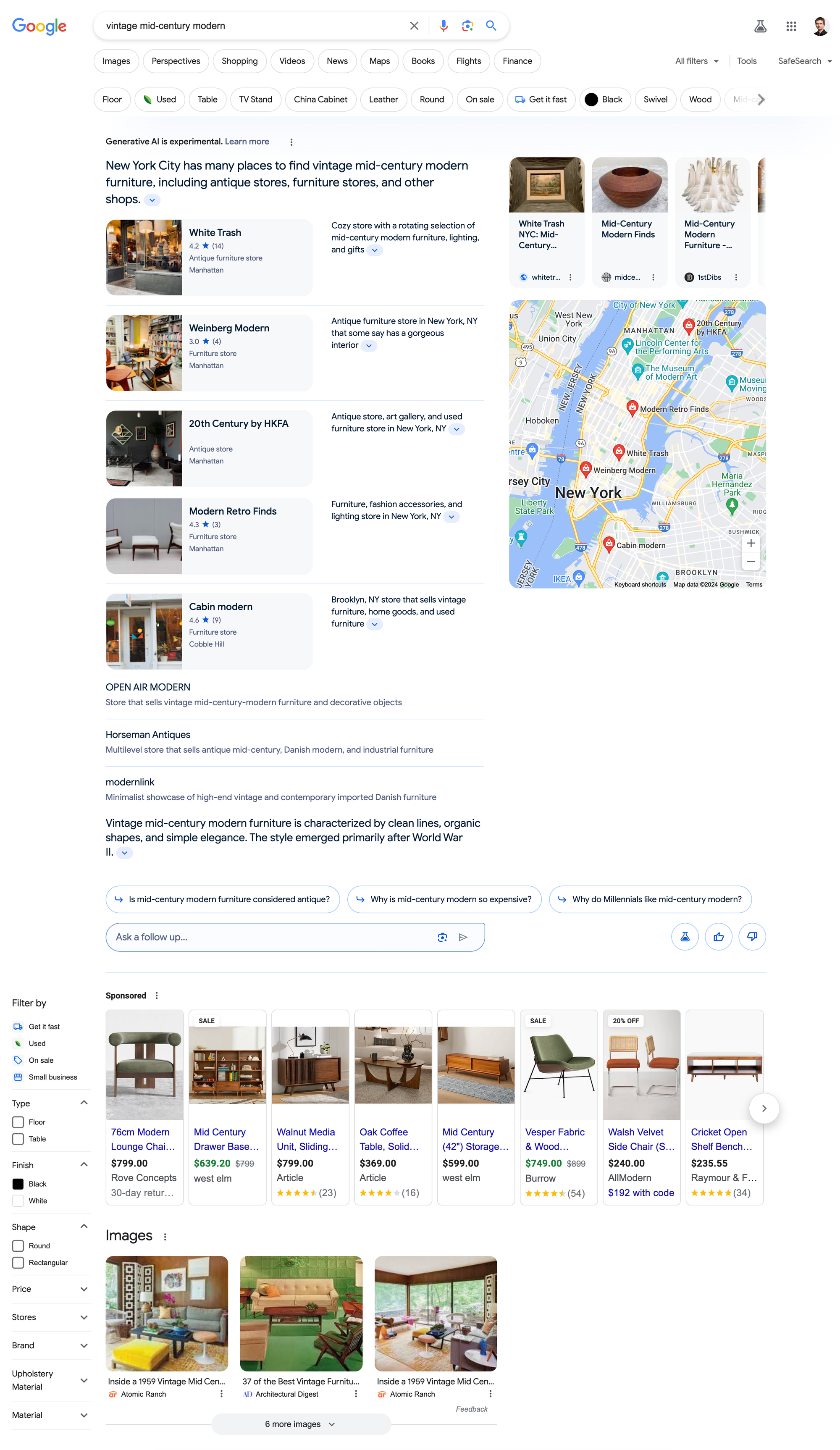The Search Generative Experience (SGE) feature in Google Search is currently the most anticipated event in SEO. There's no doubt that SGE is causing anxiety among SEOs and company stakeholders alike for several reasons:
- SGE can drastically change how people search and interact with search results, altering traditional SEO strategies.
- It potentially pushes traditional search results further down the page, making established positions much less visible and requiring new approaches to visibility.
- This change will likely lead to people spending more time on Google’s search results and less on actual websites, emphasizing the importance of optimizing for SGE.
- SGE selects sources differently, posing a threat to established sources while offering opportunities to those that effectively adapt to and leverage it.
Given these changes, it's crucial for SEOs to tweak their strategies. Adapting is key to not only keep up but also to stand out in this ever-changing search environment.
What Steps to Take?
There's a lot of uncertainty since this is a completely new thing. Every time, when there is the potential for a big change, it's hard to tell what is real and what is just hype.
We don't yet know if this is something people will want to use and in what shape or form. However, the trend towards instant answers has been clear for a long time.
Here are the key things I recommend anyone do in preparation for SGE:
1) Get clarity on your traffic and segments
Make sure you evaluate your SEO properly. Steer away from vanity metrics such as rankings and clicks from keywords that look nice in reports but don’t drive business revenue.
Detailed segmentation will help you see where to focus your efforts and it’ll help you better understand the impact of SGE on your business.
I expect that SGE will impact more prominently informational keywords and especially those where people are looking for quick information that only scratches the surface. These are probably not converting anyway.
Proper reporting can teach your clients to look at the right numbers and likely mitigate the perceived impact of SGE.
2) Study and experiment with SGE
See it in action. Experiment with SGE as much as possible. Don't miss out: visit Search Labs now and participate in the experiment.
Joining is free, and there’s no waiting list. All you need to do is use your personal Gmail account; Google Workspace accounts aren’t allowed.
SGE behaves differently for different types of queries. For some topics, it doesn’t show at all; for others, it appears almost always.
BrightEdge analyzed one billion queries in January 2024 and concluded that at the time of analysis healthcare, ecommerce, and B2B tech are the most affected by SGE. They also provide detailed reporting on SGE here.

Observe how it impacts your industry and your important keywords. Leverage this knowledge to tailor your SEO efforts more effectively.
- Use a VPN to teleport yourself to a supported country.
If you are on a Mac, I highly recommend using Setapp (affiliate link for an extra month), which is basically a Netflix for apps. A reliable VPN service, ClearVPN, is included in the subscription. Using a VPN is crucial for appearing to access from a supported country, enabling you to participate in the experiment regardless of your real location.
- Use an Incognito window.
This helps avoid issues with cookies and location tracking that might interfere with accessing the experiment. Just to be sure 😄
- Make sure your language is set to English.
Go to your Google account settings and ensure your primary language is set to English (screenshot here). If you try to join Search Labs and see an error message in a language other than English, it means your language preferences are incorrect.
Additionally, you need to use a personal Gmail account, as is required for users in the U.S.



Examples of expanded SGE
3) Increase visibility in the era of SGE
If you see that SGE may significantly impact your business, start brainstorming what options you have to address this problem (or opportunity?).
You want to look into these areas:
- Comprehensive coverage in content: Create content that thoroughly covers topics within your niche. Generative AI can synthesize vast amounts of information, so having comprehensive, in-depth content may increase your visibility.
- Original value and unique perspectives in content: Focus on original research and unique points of view on a topic that Google could cite in SGE.
- Focus on content for long-tail, specific queries: Search is currently highly influenced by autosuggest, resulting in more uniform queries. With more conversational search and follow-up questions, this is likely to change, and people might start asking longer and very specific questions.
- Optimization of your SGE presence: When Google currently cites sources in SGE, only the first few words from your title/headline are displayed. Make sure the beginnings of your headlines are compelling for CTR. Also, ensure you have featured images, as these are used as well and can significantly influence CTR.
As we look into Google's new Search Generative Experience (SGE), there's a lot we still don't know. Will Google make this feature available for everyone? What will it finally look like? And how will it change which websites we see first in search results?
What do you think? How do you feel this might affect your website or the way you use Google? Drop your thoughts below and let's start a conversation. This is potentially a big deal, and figuring it out together could help us all.









Member discussion